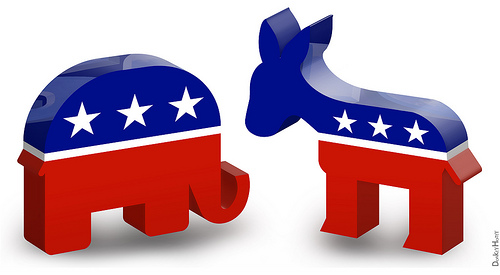


First of all, it’s great that a website with the national readership of The Daily Beast would pick up the story about Delaware Governor Jack Markell’s initiative as chair of the National Governor’s Association (NGA) to increase employment opportunities for people with disabilities. The article by Eleanor Clift, who is also a contributing editor to the site’s print entity, Newsweek, provides hope for progress by focusing on support for the idea from Congressman Pete Sessions. Like Markell, the Texas Republican was also part of the June CEO Summit organized by Walgreens, and agrees with the Democratic Governor’s vision for a voluntary, public-private partnership as a means to achieve the goal of hiring more individuals with disabilities.
Clift characterizes it as “a narrow piece of ground where a Democrat and a conservative Republican can stand together.” To be sure, bipartisanship is becoming an increasingly rare commodity in the halls of government; especially now that political sound bytes are ratcheting up in anticipation of the November elections. As has been noted here before, inclusion of people with disabilities in the workforce and their communities is one of those rare issues that receives support from both sides of the aisle.
Toward the top of Clift’s article, she asks an admittedly unseemly question: “With so many able-bodied people out of work, why would Markell choose to focus on the special needs community?” It’s a soft-toss question that sets up Markell nicely to say, “It’s not just for charity,” and launch into the business case for his “A Better Bottom Line: Employing People with Disabilities” initiative; but the question also illuminates one of the key perceptual challenges people with disabilities struggle to overcome — that they are somehow apart from the central issue of high unemployment in the U.S.
When a company makes new hires, it positively impacts the national employment rate regardless of whether those new employees are people with or without disabilities. A primary reason that workforce participation is so much lower among these individuals is because many people in this country share the mindset embodied by Clift’s question; that somehow an American with a disability is something to be considered separate from an American.
Markell isn’t doing the people with disabilities he is trying to support any favors by allowing Clift to quote him calling his NGA program as a “niche initiative.” As we noted earlier this week, he made the same mistake when talking to John Celock for his Huffington Post article. Markell should be taking exception, albeit politely, with the notion that employing an individual with a disability is not the same as employing an individual. Then perhaps we can put an end to low self-esteem comments like the one by “mntnman69,” found at the bottom of Celock’s article:
I can’t see an employer turning down able bodied unemployed to hire someone with a disability, like myself. There are so many out of work that it’s an employers market.
What would you say to “mntnman69,” or someone you know, if they made a similar comment? Share in the comments section below.
Image by DonkeyHotey, used under its Creative Commons license.